
Tough to be a Jew – or Good to be a Jew?
I had thought I'd manage to finish cleaning in there before dinner but it was not to be. And don't think I can just finish it after dinner; I have scheduled...

Some of us are already in the count-down to Pesach. For us it's not Erev Purim (we'll manage with that), we've already got our eyes on the BIG ONE – Pesach.
I've been "busy" with Pesach since Rosh Chodesh Shevat. For a whole month I've been thinking "I really must get started with my Pesach cleaning" and I've even been planning how I want to go about it. But when Rosh Chodesh Adar Aleph rolled round I said to myself "Right that's it, enough thinking. Nothing's been produced by all these fruitful thoughts; it's time to actually do something." And being a generally energetic person, I followed through on this statement.
The reasons that I give for being such an early bird are many and varied:
* I'm not so young and strong as I was, and I can't work so hard or as fast as I used to
* I haven't got small children at home anymore so why leave everything for the "last minute" and then have to rush; I can afford to start earlier and take my time
* I've got a large apartment and if I waited, as I used to, till after Purim I'd never manage
* I've got a complicated, busy household these days (I'm married to a Rov now) and I can't just stop everything and concentrate only on making Pesach ……….
and a dozen and one other reasons, all equally valid.
At any rate, I'm already into Pesach, and somewhere along the way, I'll stop off and do my bit for Purim; (I only have to prepare 60 mishloach monos, kreplech, 120 portions of stuffed cabbage and a Purim Seudah for 55 people, but at least I don't have to worry about the Purim costumes anymore).
But as you all know, none of us actually sits idly with our hands folded during the year, so even though I've started preparing for Pesach early, I'm still hurried and harried, frazzled and pressured, trying to juggle the Pesach cleaning with my every-day routine and duties.
At this moment I've got to get dinner ready because the Rov is coming home in an hour – whilst in my mind's eye I can see the mess (or jungle is more like it) in the bedroom. I had thought I'd manage to finish cleaning in there before dinner but it was not to be. And don't think I can just finish it after dinner; I have scheduled two appointments and a visit for this afternoon, so sure was I that all would have been restored to order by then. (Life must carry on as usual and why should people who need a Rebbetzen be penalized because that Rebbetzen's got this funny idea in her head that she wants to get to Pesach "calmly").
So what's actually going to happen (because it's happened before), is that late at night I'll clear some space in the bedroom so that at least we can go to sleep. A great big mess never stopped me from being able to sleep peacefully, even if it does take away my peace of mind whilst awake. (And as my wise mother a"h always said "tomorrow is a new day and a new beginning").
So here I am, standing in my kitchen trying to cook my dinner, with the phone ringing off the hook and, just for a change answering the doorbell in between, and I'm thinking "Phew, es is shver tsu zein a yid, it’s tough to be a Jew, I haven't even got time to breathe".
But suddenly I stopped….. and said aloud to myself (after all I'm talking to a very clever person who never answers me back) "Iz ess takk'e azoi shver tsu zein a yid, is it really that hard to be a Jew?" and everything faded as I was thrown back in an instant to my past, when I lived in England amongst the goyim ……
I took the phone off the hook, lowered the flames under my pots and sat down to take a trip back in time.
In my mind's eye I was coming home in the evening from doing some shopping in the city. I had just come up from the subway and was walking to the bus that would take me home.
As I walked along, a couple walked in front of me, an English woman pushing a pram with a baby in it, and an English man. As the woman's voice was slightly raised I could hear what she was saying. She was pleading with the man and these were her words:
"Please come home with me now; I've got a nice bit of dinner that I've made for us and you'll see it'll be nice. We'll sit in front of the telly (television) and I'll make it good for you". He was silent so she continued "And the boy (their baby), he'll also be happy that his dad's home, and not down at the pub". And she carried on for another minute or two, crying and begging him to come home with her.
And then suddenly – the man wasn't there anymore. As we had passed the door of the pub, without my even realizing it, he had silently slipped inside.
And she walked on…… alone .….. crying……. to that "nice bit of dinner" she had prepared for her husband – who had not come home with her.
And I walked on…… to the bus-stop, and went home, to the nice and not-so-bit of dinner I had prepared for my family, to my husband and children who were at home waiting from me.
The woman had seemed so decent and caring and normal in what she was asking for that I was shaken by what had happened; I sat there and looked around me, at my family with their shining faces, at my nachas and my joy, and I said to myself, "Ess iz gut tsu zein a yid, it’s so good to be a Jew".
And as I smiled at that memory another memory surfaced, this time in one of England's large hospitals.
I was then in hospital with my oldest daughter who was suffering from chronic kidney disease. This is a long-term illness necessitating long-term attendance at a hospital. We were on a ward with other families dealing with the same illness, so we had been meeting those same families for a few years. And as is common, if you spend a lot of time together with the same people, even non-Jews, you do form a bond with them.
On this particular morning I had met one of the mothers, Carol, an old-timer like me, whose daughter was also hospitalized at that time.
We sat there and discussed things of interest to both of us, and I mentioned that I had had a scare the night before. My husband had come home very late at night and I'd been frightened that maybe he'd been in a car accident (or chas ve'sholem beaten up by thugs, but I didn't tell her that). I had been very worried and even, at some stage, considered calling the police or local hospitals but boruch Hashem he had come home in the end, safe and sound.
Carol looked at me, with this look on her face and said "And that's all you were worried about, a car accident"? I replied in all sincerity "Off course, what else is there to worry about?"; she looked at me again, and then she dropped her eyes.
When she finally picked up her eyes she said to me "You don't know how lucky you are. If my husband is ever late, even only a little, I'm worried that he's with someone else. I'm not so young anymore, and we've been married for quite a few years, and whenever he doesn't come home on time I'm scared and wondering whether he's left me. (And her husband did leave her, with two sick children, about a year later for someone younger and prettier than her).
When I went home that evening to my husband and children who were there with me and for me and related the story to my husband both of us said together הודו לה' כי טוב כי לעולם חסדו, thank You Hashem for Your goodness.
And I thought to myself, "Ess iz takk'e gut tsu zein a yid, it is surely good to be a Jew".
And you may be sure that the next morning, when I said my morning brochos, I really said the brocho שלא עשנו גוי with great emphasis and kavono.
Ladies, do we even appreciate what we have? We are so used to our way of life, so caught up in our everyday routines, that we don't even have time to stop and think – to think אשרינו מה טוב חלקינו ומה נעים גורלנו. In the rush and the pressure to fulfill our myriad of obligations to Hashem and to our families we only see the difficulties we have, the things that eat up our time and energy.

Before you complain about your husband, consider what other people’s husbands are doing after work every day…
But perhaps in order to appreciate what we do have let's stop and consider what it's like out there in the big, wide non-Jewish world.
Let's think about the lives that are lived without meaning or purpose. The world works in order to earn money to be able to eat, and eats in order to be able to work, and somewhere along the way they relax as well. But what meaning does life have if all you've got to look forward to is the end of the working day, the next drink at the pub to pass the time, or the next holiday?
But that's not all: What about the quality of those lives? People live together for what they can get out of each other; and when one of them has no need for the other, or they've found someone better, the unwanted partner is cast off without pity or feeling. How many single-parent families are there with the young mother struggling to bring up her child or children alone? Imagine living like that with no security or thought of the future whatsoever.
And even if a woman is happily married and supposedly doesn't have the fear of her husband leaving her, there's still the daily worry of what kind of mood he'll come home in from work. Maybe he'll be calm and just eat his supper before going off to the pub to his mates, and hopefully, whilst he's out of the house he won't pop into the betting shop to gamble all the money away on the dogs or the horses.
Or will he have had a "bad "day at work, and come home cursing and raging at his wife and children, before wolfing down his supper and going off to the pub, most likely coming home drunk at 1.00am to maybe even beat up his wife. How many times did we hear screams coming from the goyishe neighbors in the middle of the night; either it quieted down on its own or the police were called out to restore the peace?
And I could go on ……. and on …… and on.
So let's sit back and make a cheshbon hanefesh. Let's count our blessings and appreciate what we do have – a calm and peaceful way of life and a secure family unit. Let's appreciate our devoted husbands who care only for us and our family. Let's appreciate our children who we are bringing up so that we can be proud of them. They will follow in our footsteps and give us generations of nachas and joy.
Let's thank Hashem for giving us his Torah and mitzvos, the blueprint for this way of life, and let's look at the mitzvos not as obligations, but as a protection and security.
YES! ES IZ GUT TSU ZEIN A YID! It’s great to be a Jew!
And yes, my dinner was ready on time, and no, it didn't burn whilst I wandered down memory lane…
Breslov Israel sincerely thanks the Melitzer Rebbetzen for her wonderful essay, and hope to host her again soon.
* Rebbetzen Shaindel Moscowitz, is the Melitzer Rebbetzen






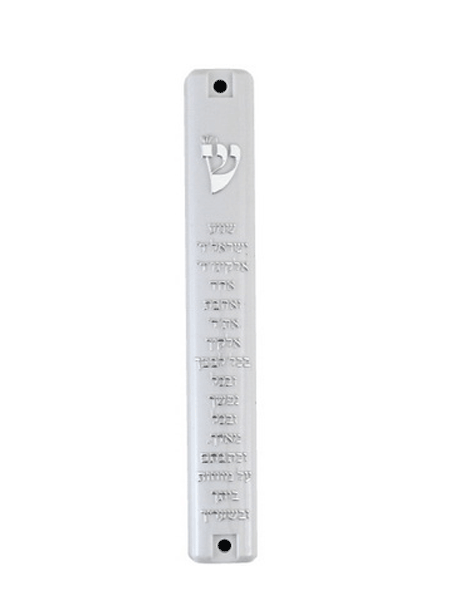
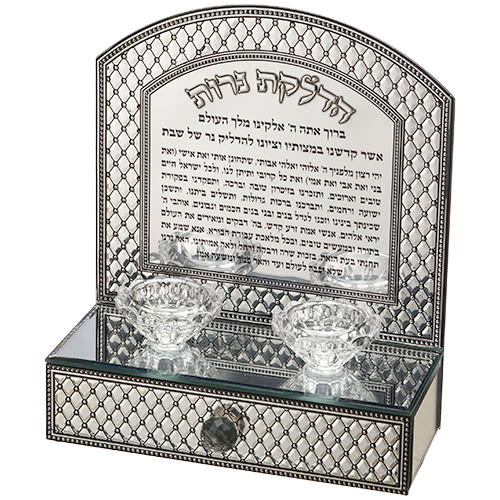
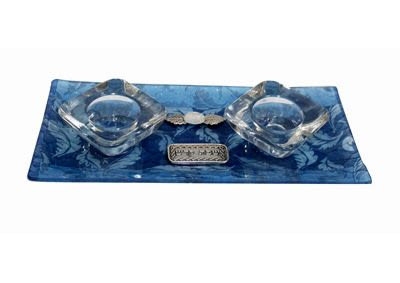
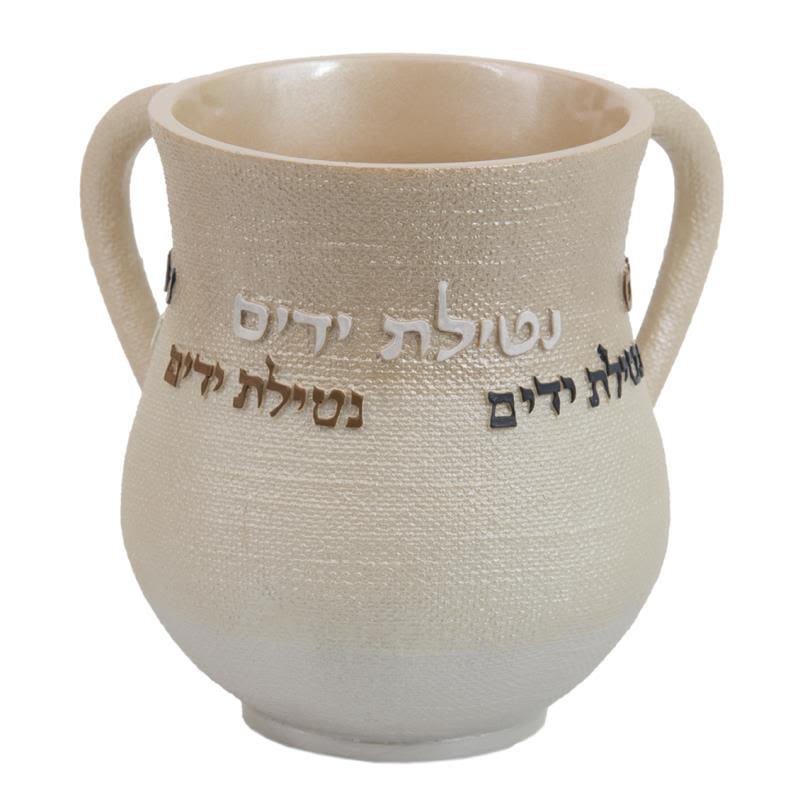
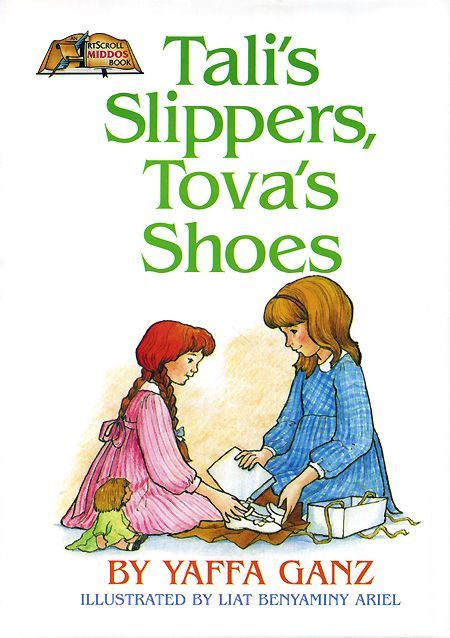
Tell us what you think!
Thank you for your comment!
It will be published after approval by the Editor.